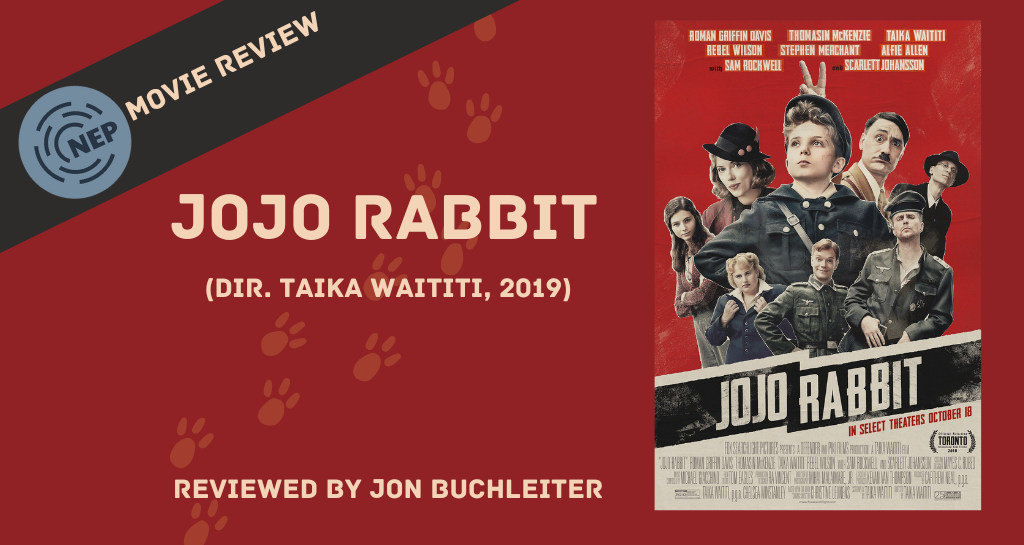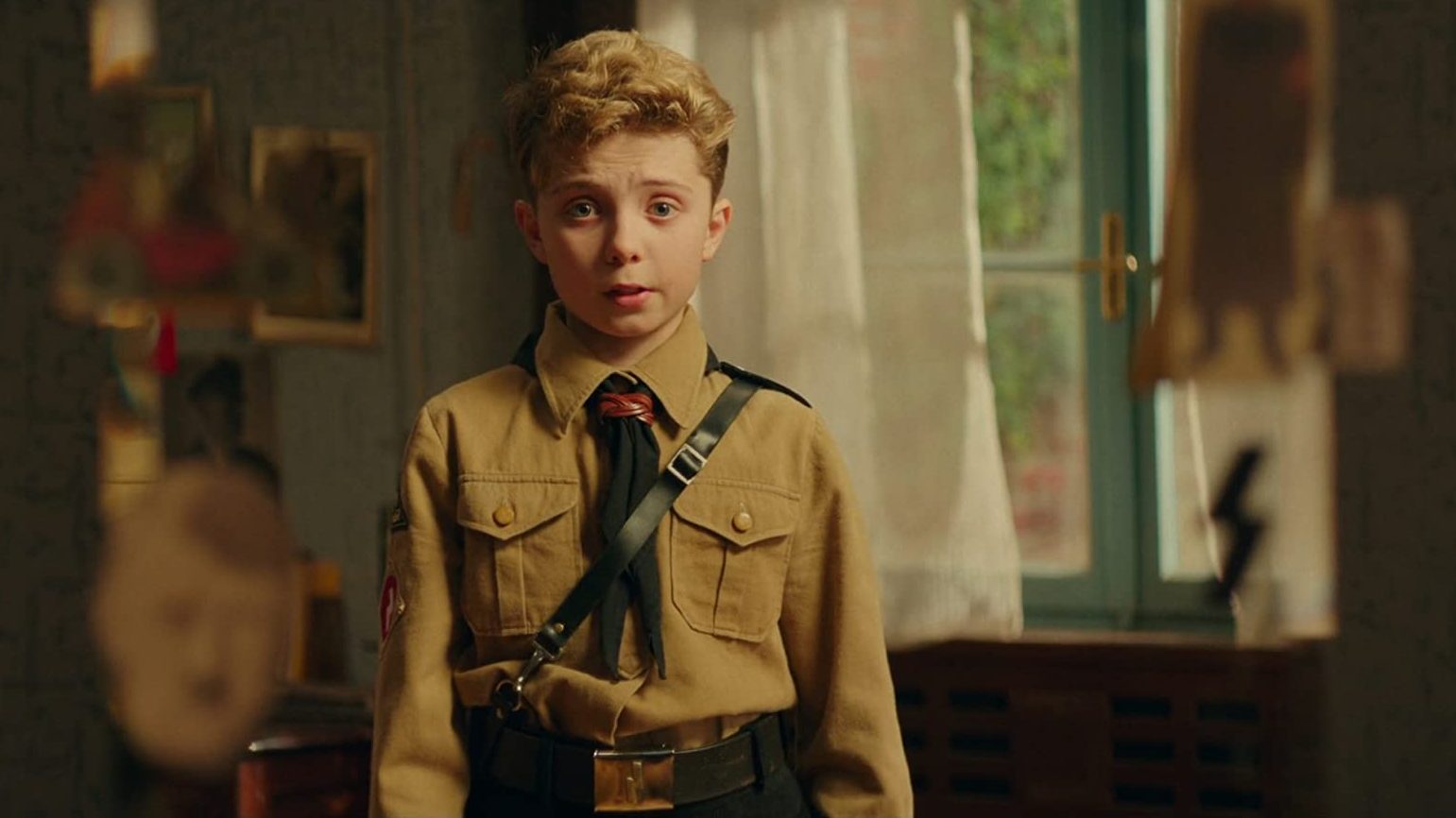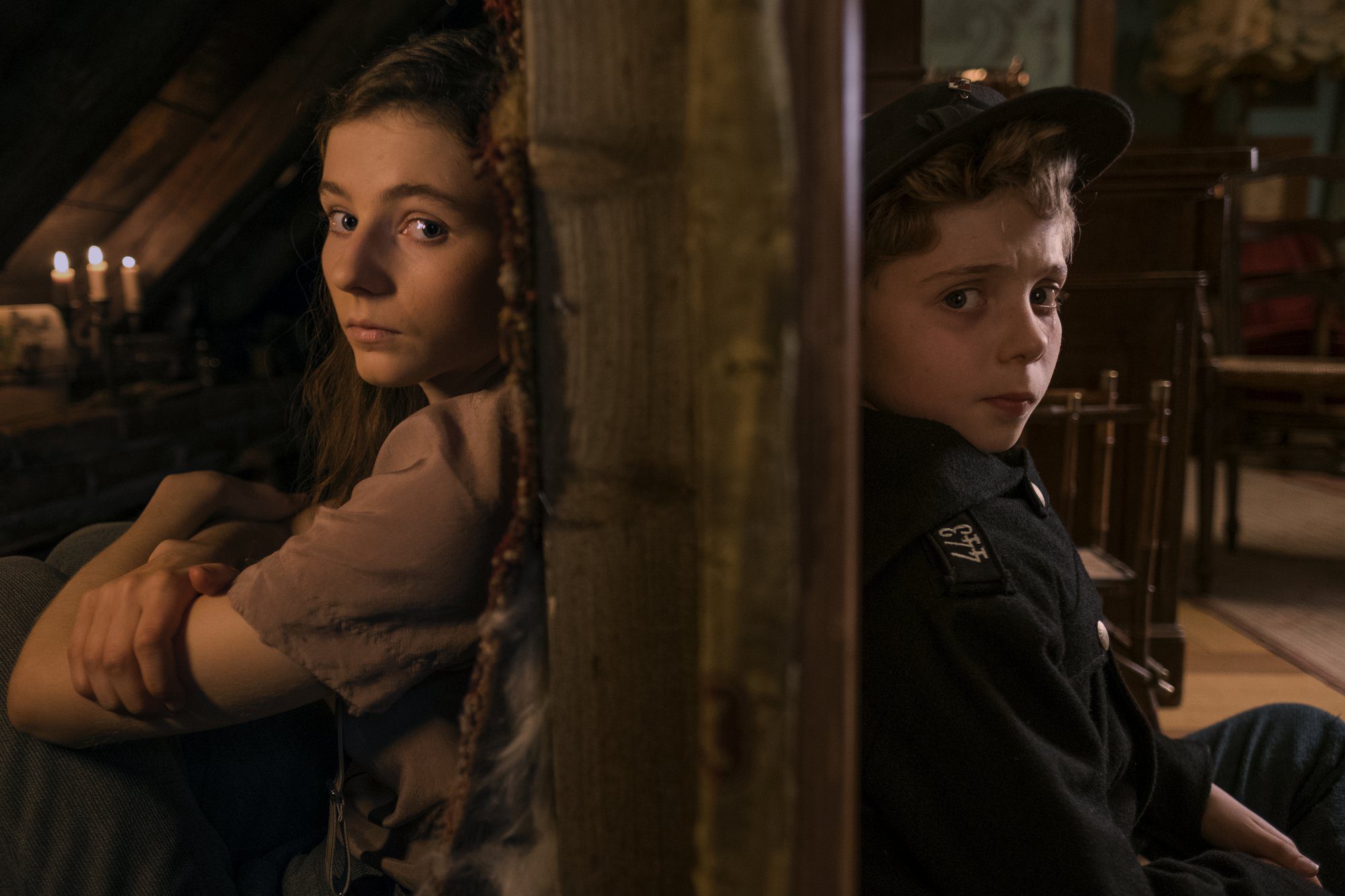
“Jojo Rabbit” is deeply imbued with irony. The film joins a long lineage of films using humor to satirize Nazi Germany. Although Taika Waititi treads a worn path in this respect, “Jojo” tells a story with a much younger and more innocent protagonist than Mel Brooks’ “The Producers” or Quentin Tarantino’s “Inglorious Basterds.” Waititi adapted “Jojo” from Christine Leunens’ Caging Skies, which is itself a stirring story of World War II and the power of disinformation. However, Waititi, in signature style, employs a mixture of sarcasm and sadness to tell the story of a boy learning about love and the harms of blind hatred. Rather than try to tackle all of the Third Reich’s atrocities, Waititi instead hones in on the dangers of demagogy through the eyes of bright-eyed, ten-year-old Johannes “Jojo” Betzler (Roman Griffin Davis).

The opening scene shows Jojo, eagerly preparing to attend a Hitler Youth training camp in 1944. Talking to his reflection in the mirror, Jojo speaks of how he will “become a man” today. Yet, for all his bluster, he is riddled with nerves as he heads off. At camp, his reluctance to demonstrate his bravery by killing a bunny earns him the mocking moniker Jojo Rabbit. During times of doubt, Jojo turns to his imaginary friend, a cartoonish Adolf Hitler (played by Taika Waititi himself), for encouragement. Waititi’s childish caricature of the Führer provides pep talks to the boy while fuming anti-Semitic rhetoric and other Nazi propaganda. Jojo eagerly assents to these rants and sets out to show his bravery before the other campers. His zeal swiftly leads to a horrible accident with a rebounding hand grenade that leaves Jojo with a limp. As a result, he is assigned menial tasks as other boys train to defend the city from the coming Allied attack.
Jojo continues displaying fervor for serving the Führer however he can. But soon he is horrified by his discovery of Elsa (Thomasin McKenzie), a Jewish girl whom his mother (Scarlett Johansson) is hiding in the eaves of their home. After Jojo’s initial terror subsides, he begins to form a relationship with Elsa, who starts to resemble his missing sister, Inge, in many ways. Even as Jojo dons his Hitler Youth uniform daily, his relationship with Elsa leads him to become uncertain about some of the savage anti-Semitic superstitions of Nazi propaganda.
His mother and Elsa both repeatedly extol the virtues of love and compassion and he further questions his own fanaticism. Jojo’s slow realization is reflected in the evolution of his own imagination. Conversations with Hitler turn from consoling to confrontational as the tyrant becomes increasingly irate, embittered by Jojo’s infatuation with Elsa and his doubts about propaganda. As the tragedies of the war come into greater focus for Jojo, he realizes the horrific results of the Nazi ideology that had so enamored him.

Waititi’s satire is driven by hyperbole and sarcasm. The erratic Captain “K” Klenzendorf (Sam Rockwell), commander of the Hitler Youth camp, embodies both of these elements. Captain K sees the writing on the wall of the impending collapse of Nazi Germany, yet he resigns himself to continue the charade of defending the fatherland. His nickname for Jojo, “Herr Handgrenade,” and remarks about teaching the Hitler Youth water warfare “in case they ever need to go to battle in a swimming pool” captures his dry humor. Such sarcastic wit is emblematic of Waititi’s over-the-top portrayal of Nazi attitudes.

The movie effectively parodies a well-known period of history to make poignant commentary on contemporary issues of demagoguery, discrimination, and drift towards dictatorships. In addition to using history to teach, this movie made history when Waititi became the first Indigenous director to win an Oscar. “Jojo Rabbit” won Best Adapted Screenplay at the 92th Academy Awards in February.
Featured Image Credit: Photo by Kimberley French. © 2019 Twentieth Century Fox Film Corporation All Rights Reserved.
The views and opinions expressed in this article or video are those of the individual author(s) or presenter(s) and do not necessarily reflect the policy or views of the editors at Not Even Past, the UT Department of History, the University of Texas at Austin, or the UT System Board of Regents. Not Even Past is an online public history magazine rather than a peer-reviewed academic journal. While we make efforts to ensure that factual information in articles was obtained from reliable sources, Not Even Past is not responsible for any errors or omissions.



